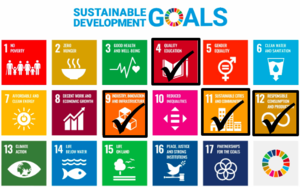
Artificial Intelligence Applications
Omnipresent digitalization in sustainable development results in increasing amounts of data in all relevant areas of environmental informatics, like renewable energy, environmental health, circular economy, green IT, transport, logistics, agriculture, photovoltaic, heating networks, power grids, urban ecology, nature-based solutions or building industries.
Related to the this years’ conference focus contributions on AI-Applications on Computational Sustainability and its relationship to Environmental Informatics are especially welcome.
Applications of artificial intelligence are able to process high dimensional data sets, to analyze them with goals for predictions, for recognition and interaction challenges for a more sustainableenvironmental protection under climate change, energy transformation and pollution conditions.
The goal of the workshop is to bundle up experts of Artificial Intelligence into a discussion on actual AI technologies which are successful in all these environmental applications and in further development on the AI-technologies.
Target group:
- Researchers from universities and industrial companies
- Industrial and communal partners, which are applying AI methods
- Students, Ph-D’s and Post Docs.
Subject areas in Environmental AI for the workshop:
- Sensor systems, data collection and data storing
- Data preprocessing, data reduction and data analysis
- Machine learning techniques and applications
- Environmental modelling and data generation
- Digital Twins
- Expert knowledge integration and scientific data models
- Decision systems
- Image processing and recognition
- Adaptive systems and self-learning systems
- Unsupervised AI
Addressed Sustainable Development Goals (SDGs):
Special Track Chair:
Grit Behrens, FH Bielefeld, University of Applied Sciences, Interdisciplinary Research and Application Development in Environmental Informatics



